Diving into the world beneath the ocean surface offers a glimpse into an enchanting underwater universe. With the right skills, scuba divers can have thrilling experiences exploring the vast marine life and unforgettable dive sites. One such destination that promises an immersive diving experience is Bali – a diver’s paradise with a plethora of site options. Your gripping underwater adventures can be safe, unforgettable, and exhilarating by mastering one essential skill – underwater navigation. This blog provides a comprehensive guide to mastering underwater navigation for a fulfilling and safe diving adventure in Bali.
Underwater Navigation: The Essential Skill for Scuba Divers
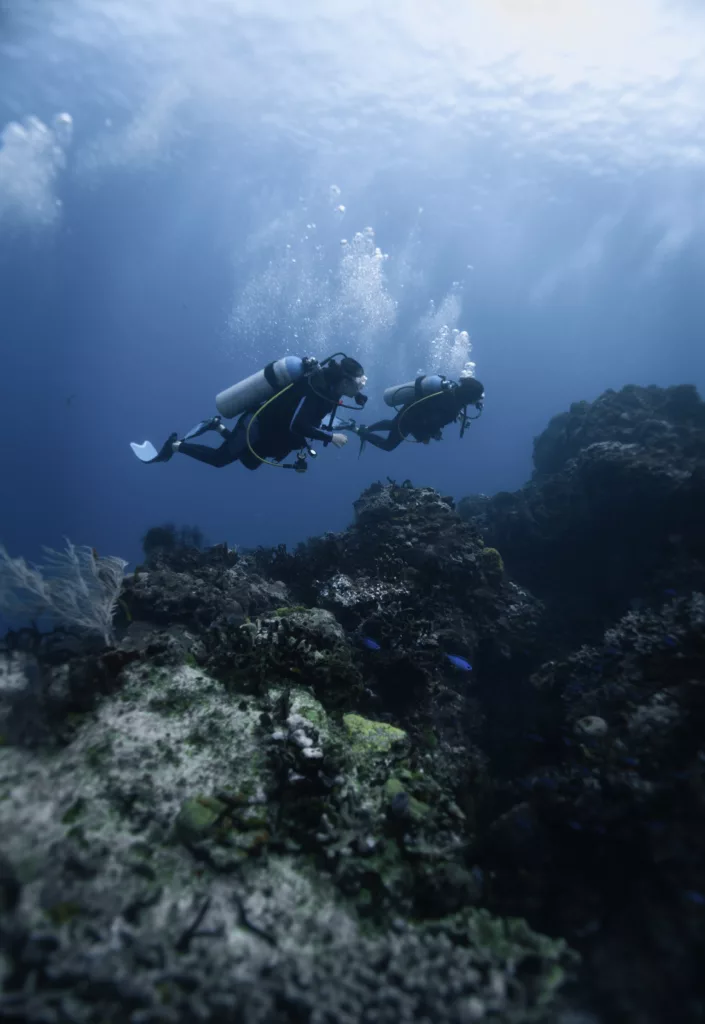
Before you leap into the mesmerizing depths of Bali’s dive sites, globally renowned for their astounding beauty, it’s vital to grasp the importance of underwater navigation. As a scuba diver, whether a novice or a seasoned professional, the foundation of your safety and the ease of your exploration relies heavily on your navigation skills. Mastering underwater navigation equips you with the confidence to venture boldly into the ocean’s azure embrace, allowing you to experience awe-inspiring marine life without the fear of losing your way. It also provides a safety net, ensuring you don’t get lost in the mesmerizing yet potentially unpredictable realm of the underwater world, leading to a more secure and enjoyable diving experience.
In Bali, where dive sites range from ancient shipwrecks to vibrant coral gardens, the ability to navigate efficiently is more than just a useful skill—it’s a crucial element in making the most out of your underwater adventures. Sites like the USAT Liberty Shipwreck in Tulamben, with its labyrinthine layout, or the strong currents at Nusa Penida, demand precise navigation. Without it, divers risk missing the best parts of these locations or, worse, straying into unsafe territory. Strong navigation skills enable you to explore with confidence, discover hidden treasures, and appreciate the stunning marine biodiversity that makes Bali a top diving destination. It allows you to swim through the ocean’s unique landscapes, from the vibrant coral walls of Menjangan Island to the manta ray-filled waters of Manta Point, with a sense of direction and purpose.
Underwater navigation also plays a pivotal role in marine conservation efforts. Divers with solid navigation skills are less likely to cause damage to the delicate ecosystems that thrive beneath the surface. By mastering buoyancy control and maintaining a clear sense of direction, you minimize contact with sensitive coral reefs and other fragile marine habitats. This approach helps preserve the beauty and health of Bali’s underwater world for future generations. As you navigate through Bali’s diverse dive sites, you’ll find that these skills not only enrich your diving experience but also contribute to the ongoing efforts to protect and sustain the island’s vibrant marine ecosystems. With proper navigation, each dive becomes a journey of discovery, safety, and environmental responsibility, ensuring that Bali remains a haven for divers seeking both adventure and ecological harmony.
Why Underwater Navigation Can Be a Challenge
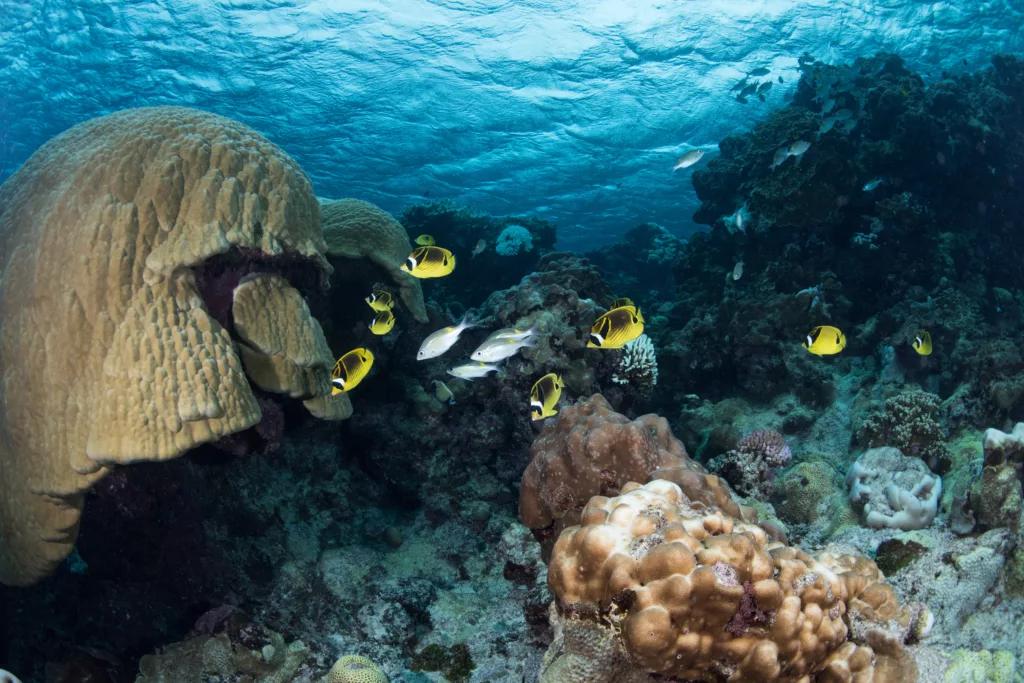
Even the most experienced scuba divers can find themselves disoriented underwater, despite years of expertise and countless dives. The reasons for this disorientation vary, ranging from limited visibility to unexpected currents, or even a lack of familiar landmarks beneath the waves. This unexpected confusion is precisely why mastering underwater navigation becomes a pivotal skill for any scuba diver. It’s not just about finding your way back to the surface; it’s about having the confidence to explore the aquatic world safely and efficiently, turning potentially dangerous scenarios into exhilarating yet secure underwater adventures.
Effective underwater navigation relies on various tools and techniques, from compasses to natural cues like sunlight direction and water currents. By understanding and utilizing these methods, divers can better navigate through complex underwater landscapes. This skill is especially crucial when diving in Bali, where the diverse array of dive sites can present unique challenges. From the intricate passages of shipwrecks to the strong currents around Nusa Penida, divers with strong navigation skills can explore with ease and confidence, enjoying the beauty of the underwater world without fear of getting lost or facing unforeseen dangers.
Beyond ensuring safety, underwater navigation also plays a key role in responsible diving practices. When divers can navigate accurately, they are less likely to damage fragile coral reefs or disturb marine life, promoting a more sustainable approach to scuba diving. This conservation-minded approach not only protects the delicate ecosystems of Bali but also ensures that future generations can continue to enjoy the wonders of the underwater world. By honing these navigation skills, divers contribute to the preservation of Bali’s unique marine environments, transforming each dive into a harmonious blend of exploration, safety, and ecological responsibility.
Mastering Navigational Tools for Scuba Diving
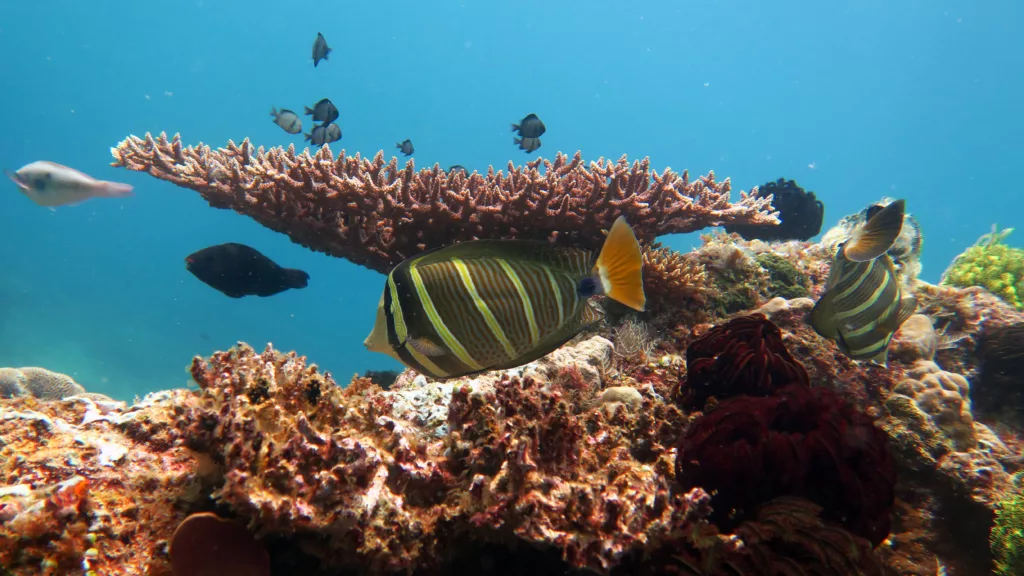
Successful underwater navigation relies on mastering two primary techniques: natural and compass navigation. Natural navigation involves reading the environment, using cues such as water currents, the position of the sun, and the behaviors of marine life to orient yourself. This technique requires keen observation and an understanding of the underwater ecosystem’s subtleties. In contrast, compass navigation relies on precision and a clear sense of direction, with divers learning to follow a specific bearing to reach their intended destination. Together, these methods offer a comprehensive approach to navigating the vast and often unpredictable underwater world, ensuring safety and enhancing the overall diving experience in Bali.
Bali’s dive sites offer a rich tapestry of underwater landscapes, each with its own unique set of challenges and rewards. From the haunting allure of shipwrecks to the vibrant coral gardens, divers must navigate diverse terrains that can sometimes be disorienting. This is where effective underwater navigation becomes crucial. By combining natural and compass navigation techniques, divers can explore Bali’s hidden treasures with confidence. Whether you’re drifting through strong currents at Nusa Penida or exploring the intricate passages of the USAT Liberty shipwreck in Tulamben, having a solid understanding of these navigation skills ensures you stay on course and can fully appreciate the wonders surrounding you.
Moreover, underwater navigation plays a pivotal role in preserving Bali’s marine environment. With accurate navigation skills, divers can avoid damaging delicate coral reefs and minimize their impact on the marine ecosystem. This responsible approach to diving aligns with Bali’s commitment to sustainable tourism, promoting an eco-friendly ethos that benefits both divers and the underwater world. By mastering underwater navigation, you contribute to the long-term preservation of Bali’s rich marine biodiversity, allowing future generations to enjoy the same breathtaking beauty that captivates divers today.
Must-Visit Dive Sites in Bali: The Ultimate Underwater Adventure
Bali, an island paradise often cloaked in superlatives, and rightfully addressed as the gleaming jewel of the Indonesian archipelago, has on offer a plethora of adrenaline-filled dive sites. These exotic locations, such as the time-forgotten USS Liberty Shipwreck nestled in Tulamben, the cradle of rich coral gardens in Menjangan Island, or the breath-stealing underwater cliffs in Nusa Penida, and many others, offer a visual spectacle of diversely vibrant marine life. So strap up, conquer your navigational skills, and prepare to embark on a captivating underwater adventure into Bali’s spellbinding aquatic realm, guaranteed to leave you craving more.
Conclusion: Your Key to Unlock Unforgettable Underwater Adventures
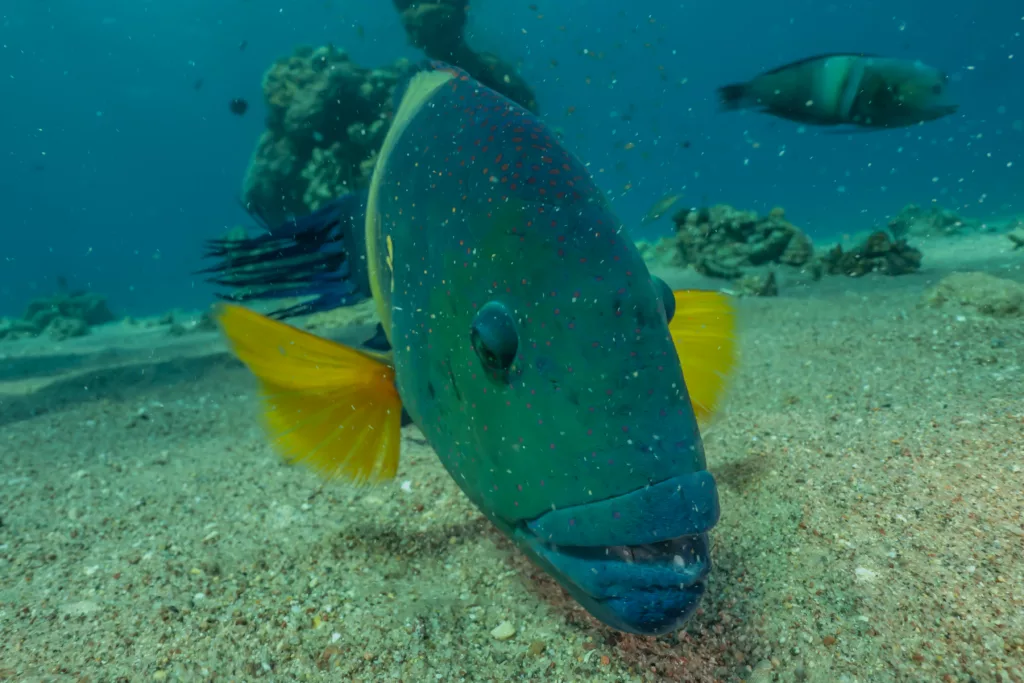
In summary, mastering underwater navigation is a key factor in ensuring a safe and rewarding scuba diving experience. By honing your skills in reading the ocean’s currents, using natural landmarks, and effectively operating a compass, you unlock a world of possibilities. These skills are not only crucial for personal safety but also open doors to more immersive and thrilling underwater explorations. In Bali, where the dive sites offer a variety of unique challenges and surprises, such mastery is the gateway to a truly remarkable diving adventure. Each dive into Bali’s vibrant and diverse marine life is an opportunity to practice these navigation techniques and embrace the beauty of the underwater realm.
When you dive in Bali, you’re not just exploring a tropical paradise; you’re also engaging with a living, breathing ecosystem. As you navigate through the crystal-clear waters, you encounter a spectrum of marine life, from playful dolphins and majestic manta rays to the more mysterious creatures dwelling in the deep. Effective navigation allows you to explore these breathtaking environments with a sense of direction and purpose. Whether you’re visiting the haunting remains of the USAT Liberty shipwreck or gliding through the colorful coral gardens of Menjangan Island, the skills you acquire through underwater navigation will serve you well, ensuring you make the most of every moment spent below the surface.
Ultimately, the true joy of scuba diving lies in the discovery and the thrill of adventure. With a solid understanding of underwater navigation, you can dive with confidence, knowing that you’re not just visiting these magnificent dive sites but truly experiencing them. This skill allows you to embrace the serenity and excitement that Bali’s underwater world has to offer, transforming each dive into an unforgettable journey. So, pack your scuba gear, prepare for an adventure like no other, and let Bali’s vibrant marine life and stunning dive sites take your breath away. With proper navigation, you’re ready to explore the hidden treasures of Bali’s oceans, creating memories that will last a lifetime. Happy diving!

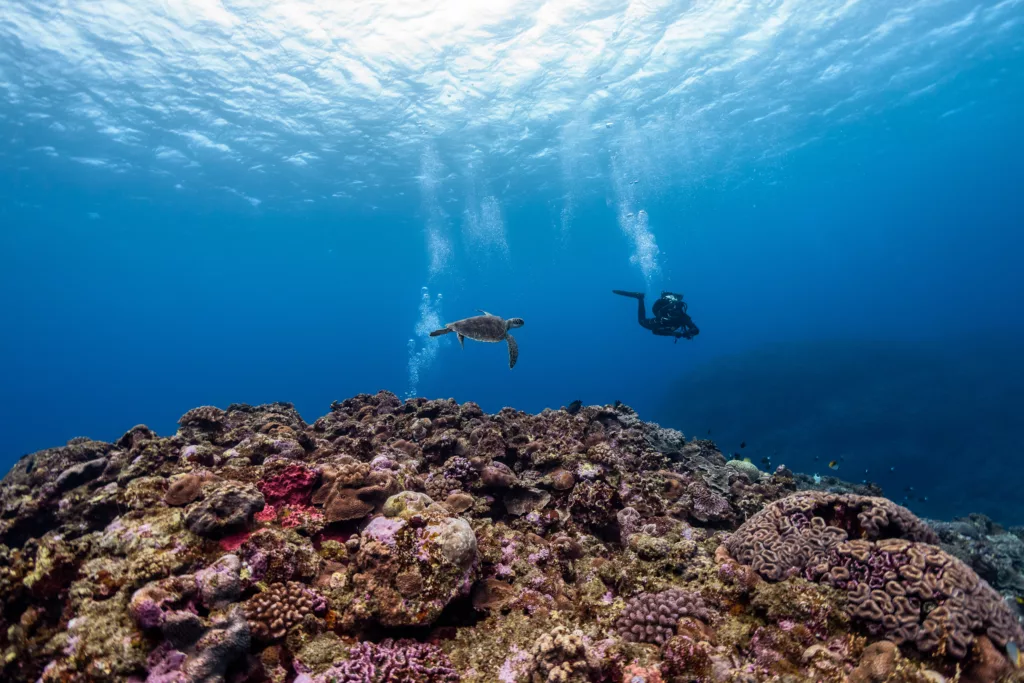
I never thought I’d be interested in diving, but after reading this blog post, I’m hooked! The tips on underwater navigation are super helpful and I love the emphasis on responsible diving practices.
Hi Lingyun, thank you for your enthusiasm and interest in diving! We’re thrilled to hear that our blog post has sparked your curiosity. Mastering underwater navigation is indeed a crucial skill for any scuba diver, and we’re glad you found the tips helpful. At Pebble and Fins, we prioritize responsible diving practices and are committed to making a positive impact on the local community and marine environment. If you have any questions or would like to learn more about our resort’s initiatives, feel free to reach out to us at [email protected] or +62 857 3891 8262. We’d be happy to chat with you further! Looking forward to hearing from you again.
As a beginner diver, I found the step-by-step guide to underwater navigation really useful. Can’t wait to try it out on my next dive!
Thank you so much for sharing your experience with our underwater navigation guide, Kavin! We’re thrilled to hear that it was helpful for a beginner diver like yourself. We completely agree that mastering underwater navigation is crucial for a safe and enjoyable dive. If you have any questions or need further guidance, please don’t hesitate to reach out to us at [email protected] or +62 857 3891 8262. Looking forward to hearing about your next dive adventure!
I’ve been diving for years, but this post has given me new ideas on how to improve my skills. The section on natural navigation was particularly eye-opening!
Thank you so much for sharing your thoughts, Faridah! We’re thrilled to hear that our post has inspired you to improve your diving skills. Natural navigation is indeed a crucial aspect of scuba diving, and we’re glad you found it eye-opening. If you have any more questions or need further guidance on navigating the underwater world, please don’t hesitate to reach out to us at [email protected] or give us a call at +62 857 3891 8262. We’d be happy to help. Happy diving!